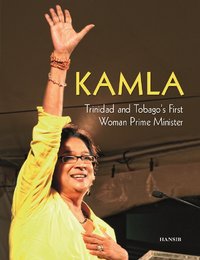|
Getting your Trinity Audio player ready...
|
Reading Time 1 mins
May 30, 2022
Caribbean nations commemorate Indian Arrival Day as a public holiday throughout May and early June. Today, May 30, it’s celebrated in Trinidad and Tobago, following Grenada on May 1, Guyana on May 5, Saint Lucia on May 6, and Jamaica on May 10. And on June 1, it’s celebrated in St. Vincent and the Grenadines.
Click here to read and join the conversation around “Crossing The Dark Waters,” Kenneth Jaikaransingh’s reflections on the East Indian presence in Trinidad and Tobago relevant to the broader Caribbean.
The Day marks the arrival of the first wave of Indian Indentured laborers brought to the Caribbean in 1838 to the sugar estates as replacements for the newly-emancipated Africans. Because of the unfair terms of the “contract,” some scholars have referred to the series of migrations as “deceptive indentureship”1which led to a “structural stealing of voices,” especially women who became even more powerless than their male counterparts.2
The majority came from the same cultural area, Uttar Pradesh and Western Bihar, and the journey took between 10 and 20 weeks, depending on the Caribbean destination. Guyana was the recipient of 238,909 East Indian immigrants up to the termination of the system in 1917; Trinidad 143,939; Guadeloupe 45,844; Jamaica 36,412; Suriname 35,501; Martinique 25,509; French Guiana 19,276; St. Lucia 4,354; Grenada 3,033; St. Vincent 2,472; St. Kitts 337.
Today, East Indians number about one-sixth of the Caribbean’s population (over a million). With substantial concentrations in Trinidad, Guyana, and Suriname, they are the most significant minorities in Jamaica, Guadeloupe, Martinique, Grenada, St. Lucia, and St. Vincent.
And now, their voices are increasingly being heard in the ongoing Reparations Debate, forging connections between fellow victims of European colonization–the Indigenous Peoples and formerly enslaved Africans–as a historically aggrieved group seeking reparatory justice.
From BDN Editors
- Statement by the CARICOM Reparations Commission [↩]
- Gaiutra Bahadur, “Conjure Women and Coolie Women,” Small Axe, no 56, (July 2018) 246. [↩]

